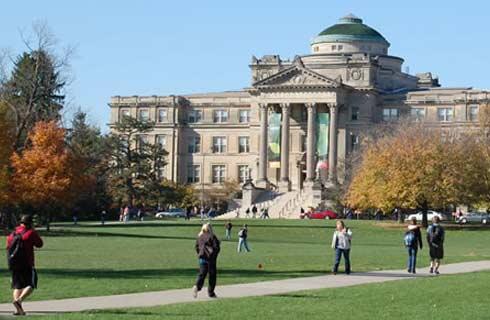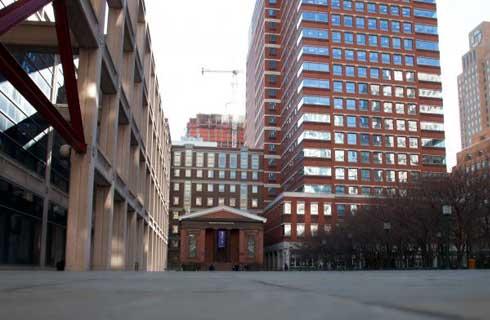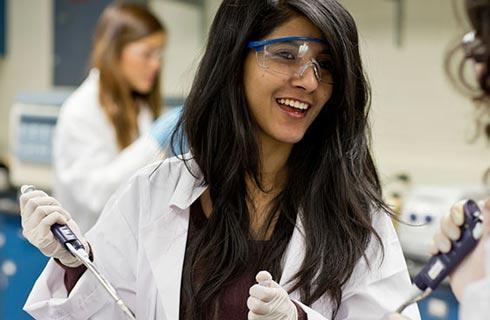技术学士(科学)
Bachelor of Technology (Science)

学历文凭
Bachelor Degree

专业院系
Centre for Applied Science and Primary Industries

开学时间

课程时长

课程学费

国际学生入学条件
- Candidates are required to have gained an international qualification equivalent to NCEA Level 3 or
- A relevant qualification at Level 3 on the NZQF or above or
- Equivalent
Candidates who have English as a second language are required to have an International English Language Test System (IELTS) score of 6.0, with no individual band score lower than 5.5; or
- TOEFL Internet-based test (iBT) score of 60 (with a writing score of 18)
- TOEFL Paper-based Test (pBT) score of 550 (with an essay score of 5 TWE)
- Pearson Test of English (Academic) score of 50 with no band score lower than 42
IDP—雅思考试联合主办方

雅思考试总分
6.0
- 雅思总分:6
- 托福网考总分:60
- 托福笔试总分:160
- 其他语言考试:PTE Academic requirement - PTE (Academic) score of 50 with no band score lower than 42
CRICOS代码: WK2560
申请截止日期: 请与IDP联系 以获取详细信息。
课程简介
TheBachelorofTechnologyisaninnovative,practically-orientatedandfuture-focuseddegree.Inthisprogramme,youwilldevelopabroadandpracticalfoundationinscienceandtechnology,withaspecificendorsementinoneofthefollowing:BiotechnologyEnvironmentaltechnologyFoodtechnologyAgritechnologyTheseareashavebeenchosenfortheiralignmentwithlocalindustryandthediverserangeofopportunitiesavailableforemployment.Foodtechnologyisaboutthescienceoffood.Peoplewhochoosethispathwaycanworkinpositionsasfoodtechnologistswhodevelopnewfoodproducts,analysethecomponentsoffood,or;foodsafetyofficerswhoauditthefoodmanufacturingindustry.Environmentaltechnologyisaboutthescienceofconservation,biosecurityandenvironmentalmanagement.Peoplewhochoosethispathwaycanworkinpositionsasbiosecurityofficerswhohelpmanagepestanimalandplantcontrol,andhelpconservelocalenvironments.Biotechnologyisaboutthe'doing'ofscience.Thisincludesqualityassuranceoflaboratorypractices,analysisofsamples,andreportingonsampleresults.Peoplewhochoosethispathwaycanworkinpositionsasresearchersorlaboratorytechnicians.Agritechnologyisaboutthescienceofagriculture,includingsoilandplantanalysis,andplantandanimalproduction.Peoplewhochoosethispathwaycanworkinpositionsasresearchersorlaboratorytechnicianswithafocusonagriculture.
相关申请
 预科
预科 奖学金
奖学金 实习机会
实习机会 在校学习
在校学习 跨境学习
跨境学习 校园授课-线上开始
校园授课-线上开始 在线/远程学习
在线/远程学习
开学时间&学费
学费信息仅供参考,请与IDP联系以获取详细信息
| 开学时间 | 时长 | 学费 | 地点 |
|---|
本校相关课程

艺术大师
学历文凭
Masters Degree (Taught)
开学日期
课程费用总额


媒体艺术证书(4级)
学历文凭
Certificate level 4
开学日期
课程费用总额


新西兰工程文凭(民用)(6级)
学历文凭
Diploma level 6
开学日期
课程费用总额


兽医护理文凭(6级)
学历文凭
Diploma level 6
开学日期
课程费用总额


新西兰商业文凭(5级)
学历文凭
Diploma level 5
开学日期
课程费用总额


向讲其他语言的人教授英语的研究生文凭(7级)
学历文凭
(Graduate) Diploma level 7
开学日期
课程费用总额

其他相关课程

利兹ISC国际预科课程-科学,工程与计算机-利兹国际学习中心-ISC研究组
 Study Group学习集团(英国)
Study Group学习集团(英国)学历文凭
Foundation for Undergraduate
开学日期
课程费用总额


Master of Renewable and Future Energy
 西澳大学
西澳大学学历文凭
Masters Degree (Coursework)
开学日期
课程费用总额


MRes Acoustics
 南安普顿大学
南安普顿大学泰晤士高等教育世界大学排名:129
学历文凭
Masters Degree (Research)
开学日期
课程费用总额


专业工程学硕士
 科廷大学
科廷大学泰晤士高等教育世界大学排名:256
学历文凭
Masters Degree (Coursework)
开学日期
课程费用总额


New Zealand Certificate in Study and Career Preparation (Bachelor of Engineering Pathway) (Level 4)
 Ara坎特伯雷理工学院
Ara坎特伯雷理工学院学历文凭
Certificate level 4
开学日期
课程费用总额


工程师文凭(标准)
 悉尼科技大学学院
悉尼科技大学学院学历文凭
Diploma
开学日期
课程费用总额











